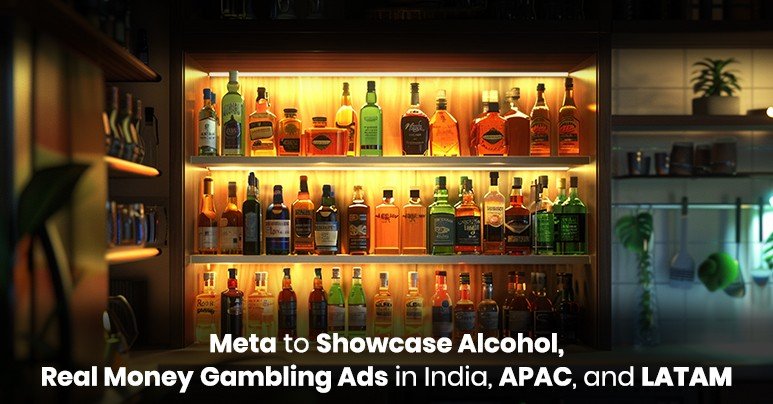On August 20, 2024, social media giant Meta made headlines with the announcement that, starting August 27, 2024, it will begin showcasing advertisements for alcohol and real money gambling in key regions, including India, the Asia Pacific (APAC), and Latin America (LATAM). This decision marks a significant shift in Meta's advertising policy and has sparked widespread debate regarding its potential impact on public health, industry dynamics, and consumer behavior.
A Shift in Strategy
Meta’s decision to open its platforms—primarily Facebook and Instagram—to alcohol and gambling ads is not without controversy. These ads, particularly in regions with diverse cultural and social norms, raise questions about the responsibilities of global tech companies in shaping public discourse and behavior.
The move is particularly contentious in India, where the government has recently taken a strong stance against surrogate advertising—whereby companies promote a related product to indirectly advertise alcohol or tobacco. The new draft regulations could impose hefty fines, up to ₹50 lakh, on companies like Carlsberg, Pernod Ricard, and Diageo if they continue using surrogate advertising tactics. Meta's decision to allow direct alcohol ads seems to challenge the spirit of these regulations, potentially creating friction between the tech giant and local authorities.
Industry Dynamics and Consumer Behavior
For the alcohol and gambling industries, Meta's decision could provide a substantial boost. Brands will now have access to Meta’s vast user base, allowing them to target specific demographics with tailored messages. The primary platforms for these ads will be Facebook and Instagram, with video ads expected to be the most common format. For real money gambling, there will also be banner ads, particularly on WhatsApp, offering a direct line to potential consumers.
However, the impact on consumer behavior could be profound and potentially negative. Alcohol and gambling are both associated with significant public health risks, including addiction and financial instability. By normalizing these activities through frequent exposure on social media, Meta may inadvertently contribute to an increase in related health and social issues. This concern is particularly relevant in countries like India, where alcohol consumption and gambling have deep-rooted social stigmas.
Public Health Concerns
Public health advocates have expressed alarm at Meta's decision. The normalization of alcohol and gambling ads on platforms that are widely used by young and impressionable audiences could lead to increased rates of addiction and other related problems. The potential for harm is especially high in countries where public health infrastructure is already strained and where mental health services are often inaccessible.
While Meta’s move may be seen as a business decision aimed at maximizing ad revenue, it also raises ethical questions about the role of social media in promoting products that can have serious societal consequences.
Conclusion
Meta’s decision to allow alcohol and real money gambling ads in India, APAC, and LATAM is a double-edged sword. While it opens new avenues for revenue and brand engagement, it also poses significant risks to public health and could alter industry dynamics in unforeseen ways. As this policy comes into effect, the reactions from governments, public health experts, and consumers will be closely watched. Meta may need to carefully navigate the ethical and social implications of this decision, balancing its business interests with the potential impact on the communities it serves.





